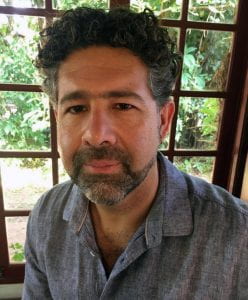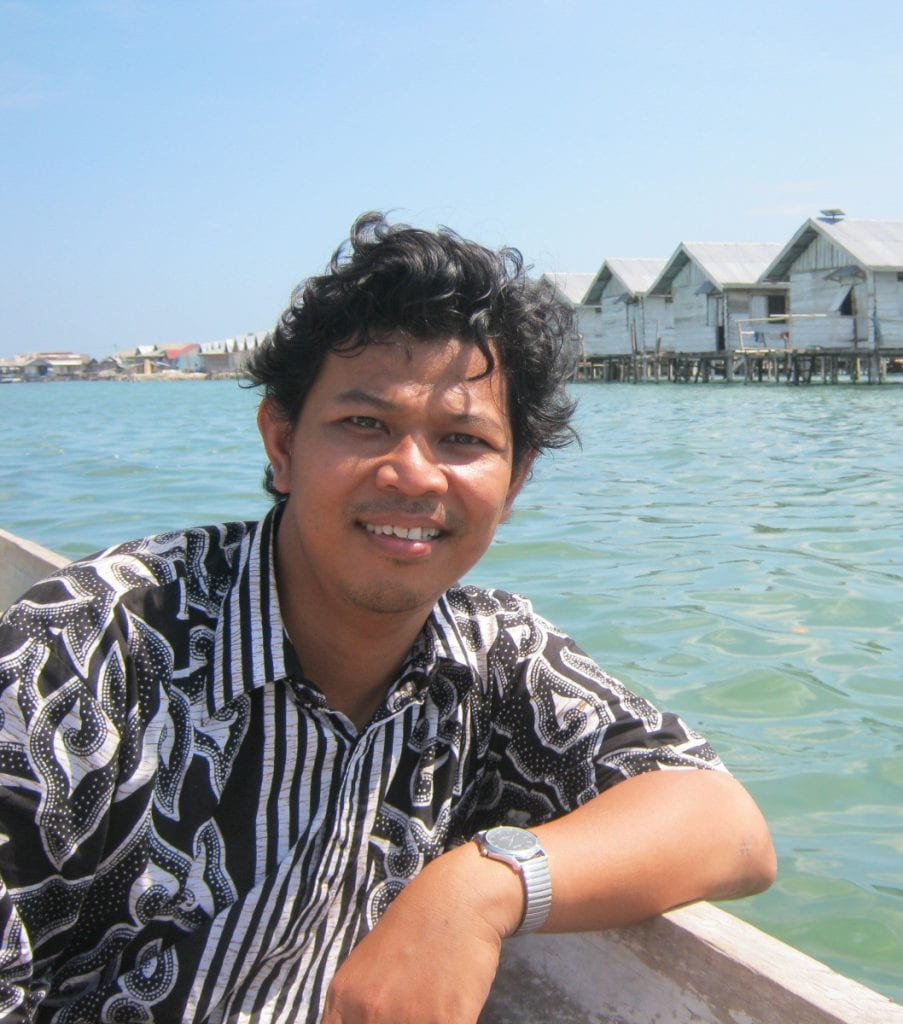
Benny Baskara is currently working as lecturer at Department of Anthropology, Halu Oleo University, Kendari, Indonesia. His research interest is mainly in studying coastal and maritime communities, especially on the Bajau people, the maritime community who live spread out on Southeast Asian waters, mostly in Indonesia. In the last months of 2019, he had an opportunity as visiting research fellow at Department of Anthropology, University of California, Santa Cruz and SEACoast. His current research is exploring the ecological view of the Bajau people, which is much influenced and determined by their indigenous belief.
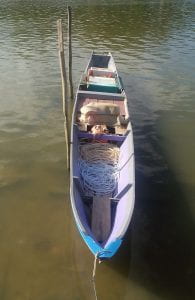 Benny Baskara’s current research is exploring the ecological view of the Bajau people in Southeast Sulawesi, Indonesia. The Bajau people have their indigenous belief, where they worship their great ancestors whom they believe are the guardians of the sea, which they called Mbo Ma Dilao. In the ecological view of the Bajau the sea and everything inside it is the heirloom of their great ancestors, and the spirit of the ancestors guard the sea for them.
Benny Baskara’s current research is exploring the ecological view of the Bajau people in Southeast Sulawesi, Indonesia. The Bajau people have their indigenous belief, where they worship their great ancestors whom they believe are the guardians of the sea, which they called Mbo Ma Dilao. In the ecological view of the Bajau the sea and everything inside it is the heirloom of their great ancestors, and the spirit of the ancestors guard the sea for them.
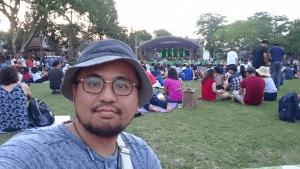 Shun-Nan Chiang is a doctoral candidate in Sociology at the University of California, Santa Cruz. His research explores the dynamics between the historical formation of the global food system, the politics of techno-social innovations, and the cultural-scientific construction of dietary knowledge. He likes to listen to stories and wander around new and old places.
Shun-Nan Chiang is a doctoral candidate in Sociology at the University of California, Santa Cruz. His research explores the dynamics between the historical formation of the global food system, the politics of techno-social innovations, and the cultural-scientific construction of dietary knowledge. He likes to listen to stories and wander around new and old places.
 In his dissertation research, Shun-Nan Chiang explores how the infrastructural environment enables the co-emergence of five distinct types of agriculture-based innovations for nutrition. These five solutions include school gardening, iron-fortified rice, moringa-supplemented products, brown rice consumption, and genetically modified rice. He traces the history of these five innovations and examines how various relations – social, symbolic, and technoscientific – intertwine with each other and render these innovations feasible solutions to malnutrition.
In his dissertation research, Shun-Nan Chiang explores how the infrastructural environment enables the co-emergence of five distinct types of agriculture-based innovations for nutrition. These five solutions include school gardening, iron-fortified rice, moringa-supplemented products, brown rice consumption, and genetically modified rice. He traces the history of these five innovations and examines how various relations – social, symbolic, and technoscientific – intertwine with each other and render these innovations feasible solutions to malnutrition.
Rafael Victorino Devos is Professor of Anthropology at the Federal University of Santa Catarina, Brazil. His research interests are perceptual skills and more-than-human socialities, experimenting on audiovisual and anthropology of landscape. Rafael is currently focusing in environmental disturbances in Brazilian coastal landscapes, following the practices of fishes and fishers. His most recent documentary, “Seeing Fish” (2017), focus in the perception of the environment involved in techniques of mullet fishing with seine nets on beaches in southern Brazil.
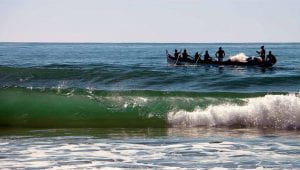
Rafael Devos’s current colaborative projects, with Professors Viviane Vedana e Gabriel Coutinho Barbosa (UFSC), focus on environmental disturbances of coastal landscapes and fishing, in Brazilian shores. In the Brazilian Northeast Coast, we investigate, with raft fishermen, navigation techniques and fishing grounds dynamics, understanding the interweaving trajectories of fishers, fishes and submerged dune fields and reefs, face to recent environmental disasters and other disturbances from the capitalist exploitation of the seascape. In the Brazilian South Coast, we investigate perceptual skills and techniques performed during the mullet (Mugil liza) fishing season. Tracking mullet schools informs a system of perceptions distributed among fishers, noticing disturbances during the season (oceanic conditions, fish schools behavior, artisanal and industrial fishing activities) in relation to the morphology of beaches, coasts, lagoons and bays, connecting coastal environments in Southwest Atlantic. Both researches also follow fishing socialities from the beach to local marketplaces, wholesale markets and environmental policies, where other disturbances can be found, with the international political economy of fishing.
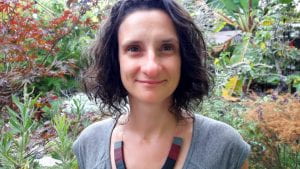
Viviane Vedana is professor of Anthropology at the Federal University of Santa Catarina (Brazil). She is interested in the technical systems of production and commercialization and the disturbances of capitalism in landscapes and practices. Her actual research focuses in fish markets as technical system of conservation and distribution and the transformations fish undergoes from commodity to food. Viviane also works on sound and visual anthropology and she recently participated in the production of the documentary, “Seeing Fish” (2017), focus in the perception of the environment involved in techniques of mullet fishing with seine nets on beaches in southern Brazil.
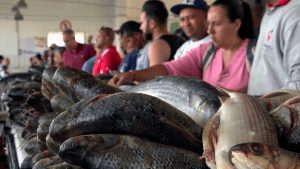 Viviane Vedana’s current research is on the movement of bodies, objects,commodities, temporalities, trajectories and exchanges that allow the encounter of fish from different places, with wholesale businesses, restaurant owners, local markets, retail sellers, clients, consumers and buyers. She is following the practices that enact the fish market – from fisherman to merchants and consumers – and the perturbations of global market of mullet roe in the fishing socialities. These perturbations are related with seasonal artisanal and industrial mullet fisheries in Brazilian South Coast and with the political economy of the international fish market whose infrastructure has disrupting effects on the environment. This research is carried out in collaboration with Professors Rafael Devos and Gabriel Coutinho Barbosa (UFSC).
Viviane Vedana’s current research is on the movement of bodies, objects,commodities, temporalities, trajectories and exchanges that allow the encounter of fish from different places, with wholesale businesses, restaurant owners, local markets, retail sellers, clients, consumers and buyers. She is following the practices that enact the fish market – from fisherman to merchants and consumers – and the perturbations of global market of mullet roe in the fishing socialities. These perturbations are related with seasonal artisanal and industrial mullet fisheries in Brazilian South Coast and with the political economy of the international fish market whose infrastructure has disrupting effects on the environment. This research is carried out in collaboration with Professors Rafael Devos and Gabriel Coutinho Barbosa (UFSC).

